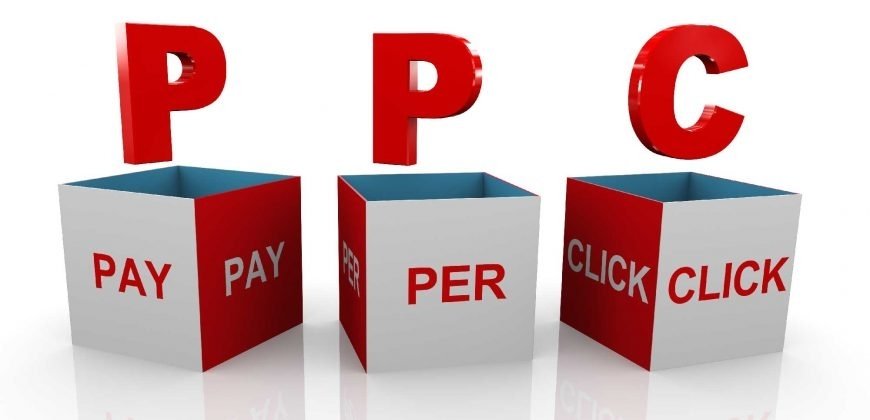How White Label PPC Solutions Simplify Multi-Platform Advertising
Discover how white label PPC solutions streamline multi-platform advertising across Google, Bing, Meta, and more. Scale your agency offerings without increasing your workload.

In today's digital marketing landscape, running paid advertising across multiple platformsGoogle, Bing, Facebook, Instagram, LinkedIn, and morerequires not only technical expertise but also significant time and resources. For agencies aiming to scale without building large internal teams, white label PPC services offer a strategic advantage. These solutions empower agencies to deliver premium pay-per-click advertising services under their brand while the execution is handled by third-party experts.
This model eliminates the complexities involved in multi-platform ad management and allows agencies to focus on client relationships, growth, and strategy. As paid media becomes more competitive, using an outsourced yet branded approach ensures optimal performance while controlling costs and reducing workload.
In this article, well explore how white label PPC services streamline the multi-platform advertising process and why agencies of all sizes are turning to this model for sustainable growth.
Understanding the Landscape of Multi-Platform Advertising
Businesses today must appear across different advertising networks to reach customers wherever they arewhether on search engines like Google and Bing, social platforms like Facebook and LinkedIn, or display networks across the web. Each platform brings:
-
Unique audience demographics
-
Distinct ad formats
-
Varying optimization techniques
-
Separate budget requirements
-
Dedicated tools and dashboards
For instance:
-
Google Ads focuses on search intent and keywords.
-
Facebook Ads offers robust audience targeting based on interests, behaviors, and demographics.
-
LinkedIn Ads is ideal for B2B campaigns with professional targeting capabilities.
-
YouTube Ads leverage video storytelling, perfect for brand awareness.
Managing each requires different skill sets, certifications, and ongoing education. Thats where the challenge begins for in-house marketing teams and growing digital agencies.
What Are White Label PPC Solutions?
White label PPC services are outsourced advertising solutions managed by a third-party provider but branded as your own. These services cover:
-
Account setup and audit
-
Keyword research and audience targeting
-
Ad creation and copywriting
-
Campaign launch and budget management
-
A/B testing and ongoing optimization
-
Analytics and performance reporting
Agencies use these services to fulfill client campaigns while presenting all deliverables with their own branding. The end client never interacts with the actual PPC providerthey only see the agency as the service provider.
The Complexity of Multi-Platform Campaigns Without White Labeling
Without white label PPC, agencies managing multiple platforms face:
-
High overhead costs for hiring platform-specific specialists
-
Steep learning curves for new platforms and their frequent updates
-
Time-intensive management of reports, optimizations, and client communication
-
Inconsistent performance due to stretched internal resources
-
Difficulty scaling as client demands increase
Running one campaign on Facebook is manageable. Running Google Search, Display, Shopping, Facebook, Instagram, YouTube, and Microsoft Ads simultaneously for several clients? Thats where white label PPC becomes a necessity, not a luxury.
How White Label PPC Solutions Simplify Multi-Platform Advertising
White label PPC providers use proprietary systems, certified experts, and integrated workflows to handle the heavy lifting. Here's how they simplify everything:
1.Unified Strategy Across Platforms
Experienced white label PPC vendors dont manage platforms in silos. They coordinate unified strategies across channels, ensuring:
-
Cohesive messaging
-
Cross-channel retargeting
-
Consistent branding
-
Optimized spend allocation
A cohesive strategy across Google Ads, Meta Ads, and LinkedIn often performs better than treating them independently.
2.Expertise Across Channels Without Hiring
Hiring experts for every channel (Google, Meta, Microsoft, LinkedIn) can quickly inflate agency payroll. A white label partner brings:
-
Certified Google Ads professionals
-
Meta Business Partners
-
Bing Ads specialists
-
YouTube and Video Marketing strategists
You get access to this talent pool without recruiting or training in-house staff.
3.Time-Saving Campaign Execution
From keyword planning to launching ad creatives, a white label PPC provider handles all execution steps. Your agency doesnt need to:
-
Write ad copy
-
Set bids
-
Build ad groups or audience segments
-
Monitor quality scores
-
Create ad extensions
Instead, your team focuses on onboarding new clients and handling relationships while your provider runs the campaigns.
4.Multi-Platform Reporting Made Easy
Instead of navigating five different dashboards, agencies receive white-labeled reports with:
-
Cross-channel KPIs
-
Platform-specific insights
-
Visual graphs
-
Conversion tracking
-
Recommendations for scaling
These reports are client-ready, saving your agency countless hours every week.
5.Performance Optimization at Scale
Most PPC providers have AI-driven systems and senior strategists who monitor and tweak campaigns 24/7. This ensures:
-
Lower CPCs and higher CTRs
-
Better ROAS (Return on Ad Spend)
-
Smarter bid strategies (manual vs. automated)
-
Faster detection of underperforming ads
As a result, client results improveand retention increases.
6.Brand Consistency and Client Transparency
All communication, reporting, and strategy decks are white-labeled. Clients never know a third party is managing their campaigns. This allows your agency to:
-
Maintain control over client communication
-
Reinforce your brand authority
-
Increase client trust
With NDAs and SLAs in place, white label PPC becomes a seamless extension of your team.
7.Faster Scalability Without Sacrificing Quality
Scaling PPC campaigns across different industries and geographies is easier when you have a backend engine already optimized for performance. A white label PPC agency lets you:
-
Serve more clients without hiring more staff
-
Expand into new niches (e.g., real estate, SaaS, eCommerce)
-
Handle seasonal spikes in demand
-
Onboard high-ticket clients confidently
You control the client growth; your provider handles the backend fulfillment.
Important Points
Here are some key considerations when using white label PPC solutions:
-
Choose a provider with experience in your niche. For example, eCommerce campaigns differ vastly from lead-gen campaigns.
-
Ensure they offer support for all platforms (Google, Meta, Bing, LinkedIn, YouTube).
-
Review turnaround time for campaign setup, changes, and reporting.
-
Ask about the tools they use (Google Ads Editor, SEMrush, SpyFu, WordStream).
-
Review past performance data to ensure consistent ROI delivery.
-
Check their approach to automation and AI to stay ahead of industry changes.
Benefits of Multi-Platform White Label PPC for Agencies
The core advantages of using these services include:
-
? Lower operational cost
-
? Fast execution and launch
-
? Expertise across ad networks
-
? Improved client satisfaction
-
? Faster ROI for clients
-
? White-labeled dashboards and reports
-
? Enhanced productivity for internal teams
With these benefits, agencies are empowered to offer enterprise-level services without enterprise-level expenses.
Real-World Use Case
Agency X is a small marketing firm focusing on healthcare clients. They previously only offered Google Ads, managed by one in-house specialist. As clients began requesting Facebook and LinkedIn advertising, the team was overwhelmed.
They partnered with a white label PPC provider. In six months:
-
Revenue increased by 40%
-
Client churn dropped by 25%
-
Time spent on campaign management decreased by 60%
-
Client base expanded into eCommerce and education
The white label PPC solution allowed them to focus on strategy and client communication while the provider handled campaign delivery across five platforms.
White Label PPC in the Age of AI
Modern white label PPC providers arent just running ads manually. They're leveraging AI and machine learning to optimize:
-
Smart bidding strategies
-
Ad copy generation
-
Automated testing
-
Budget reallocation
-
Predictive analytics
These tools allow them to deliver better results faster and at a lower costbenefits that are passed directly to your agency and clients.
Tips for Selecting the Right White Label PPC Provider
When choosing a partner, look for:
-
? A proven track record in your industry
-
? Transparent pricing with no hidden fees
-
? Dedicated account managers
-
? Customized white label reports
-
? SLA-based service agreements
-
? Support for both search and social platforms
Also, ask for demo reports, performance benchmarks, and case studies before committing.
Common Mistakes to Avoid
While the white label model is powerful, avoid these pitfalls:
-
? Choosing the cheapest provider without checking quality
-
? Failing to review strategy alignment across platforms
-
? Not setting clear communication protocols
-
? Neglecting to brand reports before sharing with clients
-
? Overpromising timelines or performance without provider confirmation
Managing expectations and keeping close collaboration with your provider ensures long-term success.
Conclusion
Running paid campaigns across multiple platforms is complex, time-consuming, and ever-changing. Agencies that try to do it all in-house often stretch themselves too thin, risking performance and client satisfaction. Thats where white label PPC solutions come into play.
By outsourcing multi-platform advertising to specialized providers, agencies can scale rapidly, improve campaign results, and keep branding intact. Whether you're managing campaigns on Google, Facebook, LinkedIn, Bing, or YouTube, white label PPC services make execution seamless.
In an industry driven by results, speed, and expertise, white label PPC isnt just a convenienceits a competitive advantage.



































![Play99 Login & Registration Guide for Indian Users [2025 Update]](https://www.atlantanewsplus.com/uploads/images/202507/image_140x98_6870c1df7bfcd.jpg)
